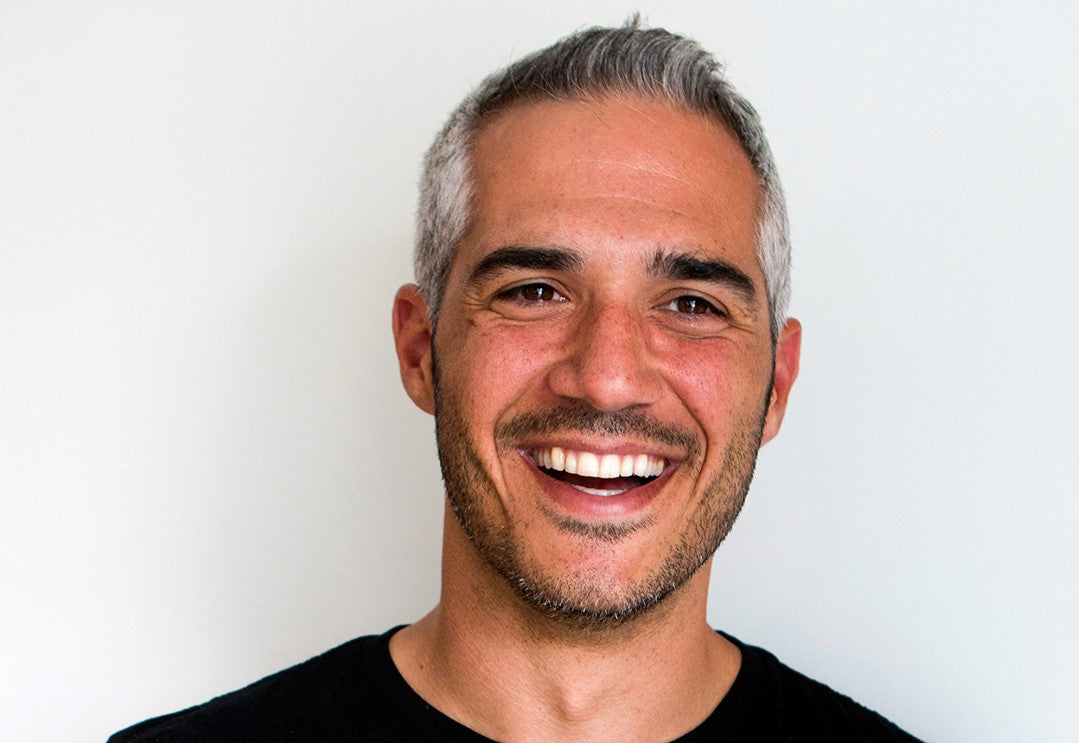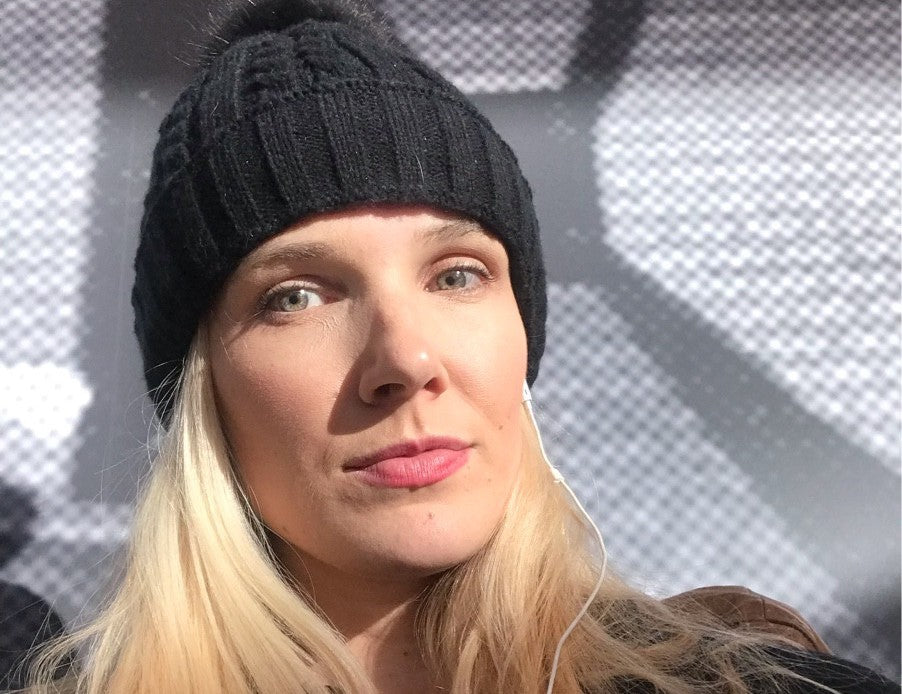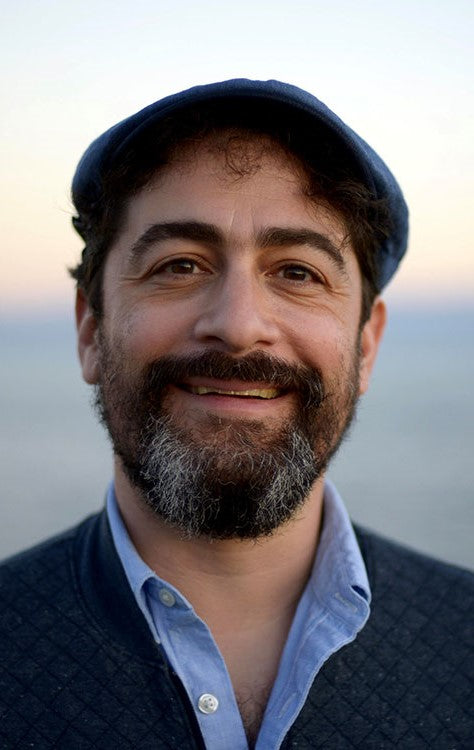An Interview with Shaun Galanos | The Business Of Love: What You Need to Know to Nurture Fulfilling Relationships

In this episode, we interview Shaun Galanos, a certified love & relationship coach and the founder of The Love Drive podcast where he interviews experts and thought leaders in the field of love. He is also a certified rape-crisis counselor who supports women in their healing journey after abuse.
The Happiness Planner: I'd love to hear about how you started and how your journey has been with your work so far.
Shaun: Yeah, so, I mean, it's a long story, but I'll give you the short version, which is that maybe seven years I found myself jobless in San Francisco, which is not a good place to be jobless, and decided to drive a taxi.
At some point, one of my friends said – "Hey, it would be interesting if you recorded your conversations with your taxi passengers." At that point, I had already been the unofficial relationship and love confidant to all of my friends because I'd always had a passion for talking about sexuality, intimacy, relationships, and dating. So, I set up cameras, microphones, and lights in the taxi and started talking to my passengers about sex, love, and dating - basically asking them questions, then took those conversations and put them online. And that's where the name the love drive came from - because I was driving around San Francisco talking about love to perfect strangers. And so, that's the seed that got my journey going.
Over time, I started writing blog posts and started a podcast to gain credibility. I began networking with people in the industry and started to educate people on communication and intimacy skills so that they can have better relationships and more love. Then, at some point, I became certified as a coach and started coaching folks and eventually started teaching courses on communication and intimacy to help people have an easier time being in loving, fulfilling relationships than I did growing up.
I think I always struggled, and at some point, I realized that there must be a better way of being in a partnership, and I also realized that there's no relationship education - we don't get that growing up. And so we're all sort of left to figure it out on our own, lean on each other, and look at our parents as role models for healthy relationships, which, for the most part, they're not right. They come from a completely different generation, and they themselves didn't have any relationship education. So, we're all sort of struggling, bumbling along, doing the best we can, and I wanted to make that a little bit easier for folks. That's the journey, in a nutshell.
The Happiness Planner: At which point did you realize that you wanted to specialize specifically in relationships? What was it about this that called to you?
Shaun: Well, after having driven the taxi for a while, I was at a crossroads in my life, where I saw a lot of my friends working in tech companies in San Francisco and making a lot of money and then me grinding it out 12 to 16 hours a day, making decent money but not tech money. And so, I had already started making these videos and writing these blog posts, a lot of them on sexuality and intimacy. And I interviewed at a couple of tech companies, and one of them, in particular, said, "You're too risky - it's too risky for us to hire you because of the content that you've put online."
So, I was sort of in a position where I needed to figure out whether I wanted to whitewash my image and go back into technology sales, or whether I wanted to jump in 100% into dedicating my career to helping people have better relationships and to deal with and explore sexuality in a healthy way and to deepen their intimacy with themselves and with others. And I decided to jump all the way in because that felt like a more interesting way of being in the world than selling software for a tech company. Not that there's anything wrong with that, we need that, but we also need relationship education, we also need people to show us how to do it, we also need to normalize this idea that relationships are hard. They're hard, and they're awkward, and they're a bit messy, and yet, for the most part, we all desire connection, intimacy, partnership, love, sexuality, and it just seemed like a more interesting path.
I also knew that I had the passion, I was at the time lacking expertise and an ability to reach people, and so I made a decision, and it took a long time for me to realize that I'd made the right decision because it's not an easy path, there aren't a lot of role models in the relationship and the sexuality education space. It's a lot easier to get a tech job than it is to build your own career and your own audience.
But at some point, I realized that I had something here, and I was helping folks, and people were showing up to my workshops, and people were wanting to be my coaching clients, and that I was making an impact in people's lives. And it's at that point that I realized that I'd made a good decision, even though it was a scary one.
The Happiness Planner: You talk a lot about emotional availability in your work. Why is it important in relationships?
Shaun: Emotional availability is important if you think it's important. Some people don't value emotional availability, and if you have two people who are perfectly happy not sharing what's going on with them, that's totally fine. I just want to be really open about the fact that for me, emotional availability is really important because I'm a very emotional person, and I like to be able to connect on that level, and I love people and getting to know someone.
One way of getting to really get to know someone is to be able to connect to how they're feeling and what's going on for them, what's coming up for them, what stories are they telling themselves, why they feel that way,
"There's no relationship education - we don't get that growing up. And so we're all sort of left to figure it out on our own, lean on each other, and look at our parents as role models for healthy relationships, which, for the most part, they're not right. They come from a completely different generation, and they themselves didn't have any relationship education."
and what in their childhood is led them to act in these ways. So, emotional availability is really important for me, because it's a really beautiful way of getting close to somebody. I also think that being emotionally close to someone can lead to physical and sexual intimacy. When you feel safe opening up to somebody, when you feel safe being vulnerable and being seen, there is a beautiful chemistry that happens that allows people to go deeper than they ever would.
That's one thing - the other is that oftentimes being in a very emotionally connected relationship will allow you to heal parts of yourself that haven't previously been healed and that need care, love, and attention. So, a lot of the healing that we need to do on our own can happen in a very safe, emotionally available, emotionally connected relationship. And so, at that point, relationships become sort of a vehicle for healing, and that healing really can't happen without being emotionally connected and available to your experience and to be experienced with the other person.
The Happiness Planner: The first thing that comes to mind for most when thinking of intimacy is sexuality and physical closeness. What does intimacy actually look like in a successful, truly intimate relationship?
Shaun: So, intimacy to me is closeness - closeness with another. And there are a lot of ways for you to be close to somebody. Physical intimacy is the first one that comes up, but some other ones are emotional intimacy, intellectual intimacy, spiritual intimacy, even professional intimacy. So how do we connect on these different facets? How do we connect to another person in more ways than one? How do we get close, and how do we open up?
Physical intimacy looks like opening up sexually to somebody, having a sexual encounter, feeling safe enough to say yes, I want to do this thing with them. Emotional intimacy looks like opening up emotionally to somebody and saying; I'm going to let you into my emotional world because I feel safe - or, I have an inkling that you're a safe person that I can open up to, that you're going to hold my heart and my vulnerabilities and my wounds and my triggers with the kind of care, love, and attention that they require. Intellectual intimacy looks like really getting to know somebody and getting to know how their mind works.
And so, these are various ways in which we can connect to people and, hopefully, a healthy relationship will include more than one type of intimacy because sometimes you're not available for physical intimacy at the same time that your partner is. So, maybe you'll have an emotional closeness, or you'll have stimulating intellectual conversations, or you'll be able to collaborate on a project together. So to me, intimacy is, how can I get close to someone in multiple different ways?
The Happiness Planner: What are some of the most common challenges that couples have come to you with over the years?
Shaun: So, I think just communication in general. Talking about your needs and your desires is really, really challenging if you're not used to doing it. Asking for what you need is sometimes hard because sometimes the thought is that if we ask our partner for what we need, it will make our partner defensive.
And there absolutely are tools that you can use to make that conversation easier, but if you're not used to talking to your partner about what you want, what you desire, whether it's in bed or in your relationship - or where you're both headed or in your future goals - if you're not used to already doing that, in the beginning, it's going to be hard to do at a later point in the relationship. It's like when you've never been to the gym, going to the gym is hard, it's awkward, it's challenging, it's not obvious. Just basically connecting or talking to your partner about what's going on for you emotionally and what's going on for you sexually are some of the things that people really struggle with and some things that I really struggled with growing up as well.
Another common struggle that people commonly face is how to keep the spark alive in a long-term relationship. How do you stay connected? How do you stay interested? How do you stay engaged and excited about your partner after you've been with them for several years and maybe even several decades for some people - especially when you have the stressors of life and work. Or, especially after a year of living together 24-7 with this pandemic, raising kids together, there's a lot of pressures that make keeping the spark alive or keeping the excitement alive in a long-term relationship really, really challenging.
These are some of the challenges that people come to me with. And then, also, there are a lot of folks that are not in relationships that struggle with how to find someone to connect with, how to feel worthy of love, and how to ask for what they want in a relationship.
The Happiness Planner: So then, what does good communication look like in a relationship?
Shaun: The ideal is trying to be as authentic as possible and letting go of the outcome for whatever it is that you're asking for. Good communication looks like, first of all, having the courage to open up and have conversations that are potentially challenging and difficult with your partner.
That's number one - having the courage and making time for it. Number two is what do I want to say? What am I actually wanting to say? What do I want to get out of this conversation? A lot of people have an idea that their needs aren't being met, but they don't really know what needs aren't being met - they just know something is off. And so, there's homework that has to happen on your part before you can bring in an unmet need to your partner, which is, what is the need that isn't met, and how can somebody meet that need?
So, having the courage, setting the stage, identifying what you want to talk about, what isn't being met, and what action items can meet that need, and then letting go of the outcome.
I had a therapist tell me once that the more you communicate, the more they communicate. This seems basic, but the more you talk, the more they talk. But we don't want to influence what they're going to say; we don't want people to manipulate anybody into doing what we want them to do. We want to invite them to have a conversation with us; we want to invite them to meet our needs. We want to invite them to do an action item that's going to meet that underlying need.
We also want to let go of whether they're going to be able to meet that need because sometimes needs are going to conflict. You might have a need for space, which is going to conflict with my need for being close. And so, healthy communication sometimes looks like not getting what you want but having the courage to have that conversation in the first place.
Another tool that I think is really helpful is to give yourself the grace to mess up and not have everything all figured out before you have a conversation. I would rather people have the conversation, and it be a little clunky and awkward, and to kind of bumble your way through it, rather than not have it at all or wait until you have the perfect way of saying exactly what you want to say. So, I'd rather people have the courage to have the conversation, hope that it turns out okay, and let go of the outcome, rather than not have it at all.
The Happiness Planner: At which point would you suggest that a couple seek help from an external party? At which point can they identify that their method isn't working, and they might need some outside help?
Shaun: At any point in the relationship, when one person wants to see a mental health professional or third-party professional is a great time for both people to go. If there is a breakdown at some point and somebody has a desire to see a therapist or a counselor, go - you have nothing to lose.
I mean, that being said, I'm very pro therapy. I've been in therapy myself or in couples counseling for at least five years of my life, and I think it's an extremely valuable tool for self-reflection, personal growth, and relational growth. And so, at any point that there's a desire for that to happen, I would recommend going. That means that there's a desire for the relationship to be closer and more connected, and that's a good thing.
I think what's scary about therapy is that often, you feel like you're going because you're messing up, because you're not doing good enough, or because your partner is unhappy, and that might be true, and that's okay. It's okay for your partner to not always be happy, but there's a desire there for things to be better, and that's beautiful. So I want to honor anybody who wants to be in therapy.
Also, know that just because you want to be in therapy, unfortunately, it doesn't mean that your partner will agree to be in therapy. Some people are really attached to the status quo, and therapy is scary- it requires self-reflection, it requires sometimes realizing things that you don't want to realize and doing work that you don't want to do. So, I just want to recognize that it's not an easy option. But for me, the work that you'll do in therapy, either alone or together - you will reap the benefits of that work for the rest of your life and all your future relationships. So, even if your partner doesn't want to go, you can go on your own and do your own work.
The Happiness Planner: Who would you recommend this kind of work to? Why is it important in relationships?
Shaun: Anybody with a heart and who wants to have more loving, fulfilling relationships. I mean, that's what it comes down to. If you want better communication, if you want deeper, more profound intimacy, and if you want relationships that are more connected and more fulfilling, those are the kinds of people I want to work with and that I want to connect to.
So if you have a heart and you want better relationships, then you're a good fit for my message.
The Happiness Planner: What advice do you have for singles that are looking to start a relationship? What do they need to be ready for?
Shaun: That a relationship will require work on both people, on both sides. This idea that when you meet someone, when you meet the one, everything will be easy is a fantasy. For the most part, relationships do require effort. They require effort and work and compromise, and they're not effortless.
That being said, some people will be easier to be in a relationship with than others based on their experiences, their traumas, their wounds, their goals, their desires in life. So, there are people that are a better fit. With any new person that you're dating, if it feels like an uphill struggle from the get-go, know that there are probably people out there that will be a better fit for you. And that's just one piece, there are other pieces.
The objective of dating or going on a date is to see if you like the other person enough to keep seeing them. Not to adjust and pretzel yourself into a person with the hope that they are going to like you back. The dating process is for you to identify whether you like them, not to make yourself likable to them. That applies to your relationship for the rest of your life. Continue seeing them to see if you want to continue seeing them until you no longer do, or one of you doesn't want to be in the relationship, or one of you dies. That's basically what it looks like. It's very simplistic, but that's my advice.
The Happiness Planner: How can you identify what is a good fit for you? Someone might be a good fit but come with baggage - they might've just come out of a relationship, have past hurts, traumas or walls. How do you figure out if something is underlying that's hindering a connection or if they just aren't a good fit?
Shaun: Well, there's always going to be baggage, there's always going to be traumas, and there's always going to be boundaries or walls. We all show up to the table with something, so I think the easiest way to look at this is, does this still make sense for me? Does continuing to explore a relationship with this person make sense? Do I still have something to learn from this experience, or is this too painful?
So, I think all relationships are an opportunity for us to learn about ourselves and what we want, and the further we go along, the more we learn about ourselves. So, these relationships are opportunities for that.
At some point, you have to figure out, is this a good fit for me? is this what I want? Is this working for me? And that answer is going to be different for everybody. There really is no catch-all answer to how do I know if this is a good fit for me. For me it might be, does it look like they are kind, respectful, are considerate? Do I like them, do they like me? Do we want the same thing? Are we attracted to each other? If I can answer yes to all of that, then I'm willing to continue exploring this until it no longer makes sense for me to for whatever reason that might come up in the course of anybody's life.
And, on the flip side, you might find someone that that is a great fit for you, and you click, you're attracted to each other, they're emotionally available, they don't have defenses, you both want the same things, and then something will change, and that will no longer be the case. So, we have no guarantees that a great fit will continue to be a great fit, and a bad fit isn't going to turn into a great fit eventually - that's what makes this so challenging.
Shaun Galanos is a love coach, host of The Love Drive podcast, and an online course creator. He teaches intimacy and communication tools for better relationships and more love.
He holds certifications in Personal and Professional Coaching from Concordia University, Rape Crisis Counseling from BAWAR in Oakland, CA, and a Bachelor’s Degree in Interpersonal Communication from UC Santa Barbara.
When he’s not teaching courses on intimacy and communication or recording his podcast, he’s continuing to learn about love, working on this relationship with his partner, and building community in Montreal.
Shaun's Info:
Website: https://www.shaungalanos.com
See Shaun’s Courses: https://www.shaungalanos.com/courses/
Listen to Shaun’s Podcast: https://www.shaungalanos.com/podcast/





Comments
Barbara —
Loved this interview